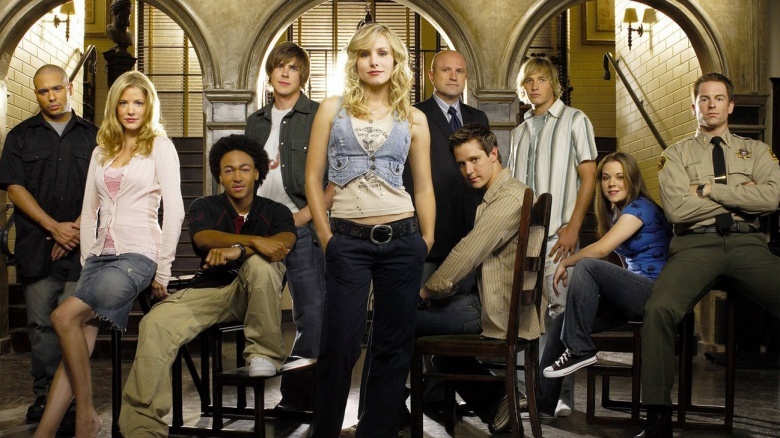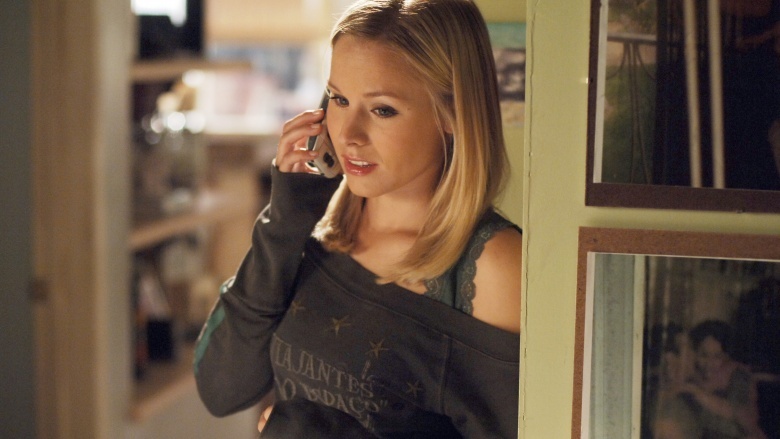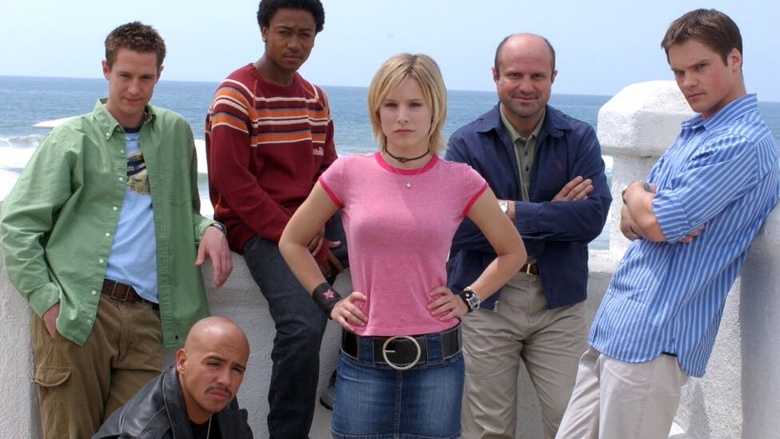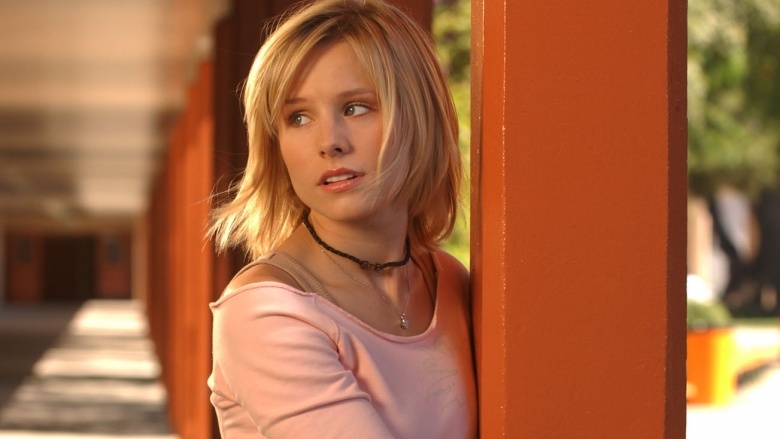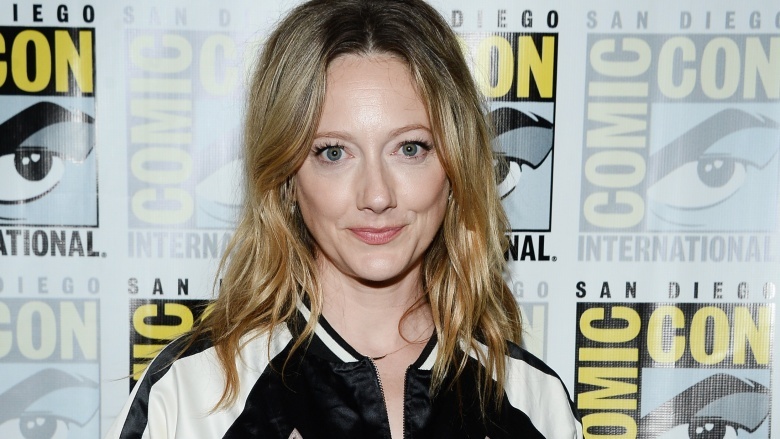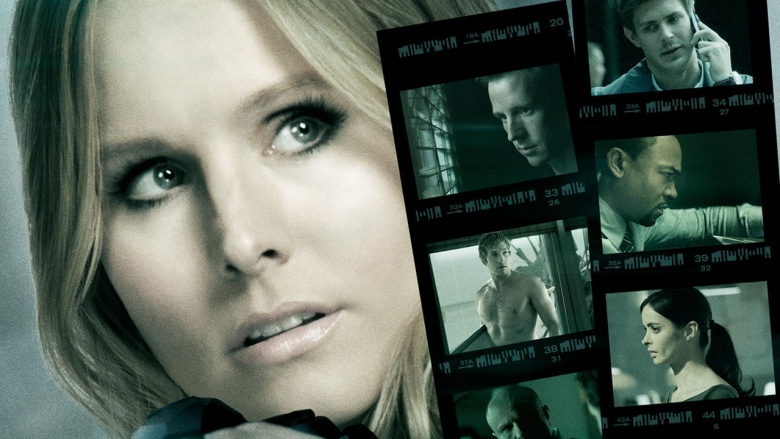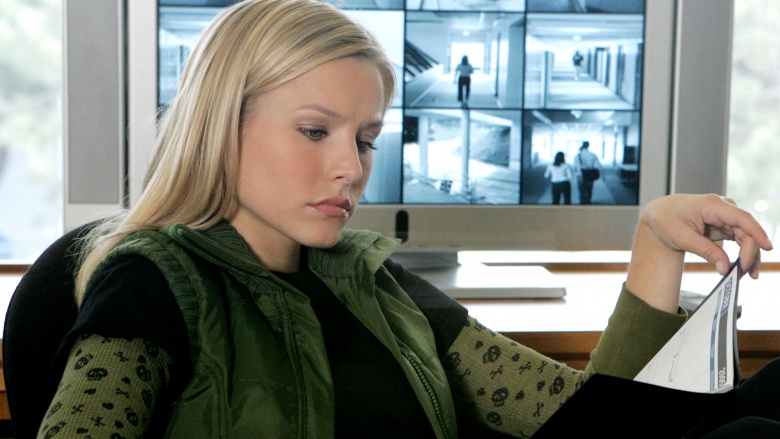The Real Reasons Why Veronica Mars Was Canceled
A cult classic beloved by its legions of devoted fans ("Marshmallows"), Veronica Mars put a truly fresh spin on the TV mystery genre. The show was set in sunny, wealthy Neptune, California, where things weren't so bright for teenage sleuth and social outcast Veronica (Kristen Bell) and her father, Keith Mars, a disgraced police chief now running a private detective agency with his talented daughter. Former young adult novel author Rob Thomas (Party Down, iZombie) created the show, a modern-day combination of equal parts noir and Nancy Drew, and it ran for three seasons on the UPN and then the CW. Here's why Mars disappeared in 2007 (only to be resurrected in 2014 as a crowdfunded movie).
It had low ratings
TV networks are a business, and low-rated TV shows tend to be a poor investment. In its first season (2004-05), Veronica Mars ranked a dismal #148 out of 156 total shows. It ticked up a bit to #145 in its second season, and #138 in its third and final run. All the while, total viewership held steady at about 2.5 million viewers. (The only shows with fewer viewers that year were other CW shows—and they were all soon canceled, too.) Said CW entertainment president Dawn Ostroff at a TV industry event shortly after the cancellation: "We really tried every single year to bring in more viewers and we just weren't able to crack it." Maybe, but the network didn't do Veronica Mars any favors by scheduling it against Fox's American Idol at the peak of that show's popularity.
It was a UPN holdover
In 2006, there were six broadcast networks: ABC, CBS, NBC, Fox, and the smaller, forever financially struggling "netlets" UPN and the WB. The two debuted in 1995 and both catered to younger, hipper audiences, which led to a cannibalization of viewers that left both networks losing money. The solution: They merged into a new network called the CW. Those initials stand for "CBS" and "Warner Bros.," the same Warner Bros. that ran the WB. This really meant that the WB absorbed UPN, as more WB than UPN shows survived the marriage. Over time, more and more of the old UPN shows disappeared, particularly the expensive-to-produce scripted series. Among the first to go was Veronica Mars.
It didn't fit in with the CW
Even though CW corporate sibling Warner Bros. Studios produced Veronica Mars, it was canceled because it couldn't draw in new viewers. That's because the CW was going after a couple of very specific audience niches, and Veronica Mars—a difficult-to-categorize show that was a little funny and a little dramatic—didn't fit in. It wasn't an African-American sitcom (like Girlfriends, The Game, and Everybody Hates Chris) and it wasn't a teen soap (Smallville, One Tree Hill, Gilmore Girls).
It was ahead of its time
Veronica Mars ran on broadcast TV just before the so-called "Second Golden Age of Television," and before streaming services enabled the phenomenon of "binge watching." Before shows like Breaking Bad and Game of Thrones were appreciated for intricate plotting that required a viewer to pay close attention and watch every episode in order for maximum understanding and enjoyment, TV shows that dared to be innovative, cinematic, and complicated were often critically acclaimed but commercially ignored. (Veronica Mars aired around the same time as Arrested Development, another show that pulled in a small but devoted audience of fans who appreciated precision.)
The show's creator was already moving on
Probably seeing the writing on the wall, Veronica Mars creator and showrunner Rob Thomas had already secured his next gig by the time the series was wrapping up its third season. He was hired on as a writer and producer for ABC's Miss Guided, a sitcom starring Judy Greer as a high school guidance counselor. Thomas was quickly promoted to showrunner and executive producer, but left the show after only a few weeks due to creative differences. Miss Guided was ultimately a midseason replacement that aired only seven episodes in the spring of 2008.
The dead show that lived again
Veronica Mars's hardcore fans couldn't let go, and neither could the show's talent. For years after the cancellation, Rob Thomas and Kristen Bell mentioned the possibility of a movie in interviews. It seemed like a longshot for a studio to finance a big-screen version of a show very few people watched, but then along came Kickstarter. In March 2013, Thomas launched a drive on the crowdfunding site to finance the movie directly from fans; within 30 days, the project had collected an astonishing $5.7 million. Thomas took a screenplay and his Kickstarter money to Warner Bros., and the studio kicked in a few more million to get the movie made. It was released to theaters and to video-on-demand platforms in March 2014.
A proposed reboot didn't come to pass
While Veronica Mars was still on the air, some CW executives asked Thomas to write a show about rookie cops. He countered with the idea of making the fourth season of Veronica Mars jump forward in time to show Veronica in her first year as an FBI agent, and they produced a pilot presentation (a mini-episode about 12 minutes long). While well-received by CW brass, the reboot/spinoff wasn't meant to be—Thomas is pretty sure CBS president Les Moonves, who had a strong hand in programming decisions after CBS took co-ownership of the CW, personally nixed the idea of renewing the low-rated show with a new premise.

